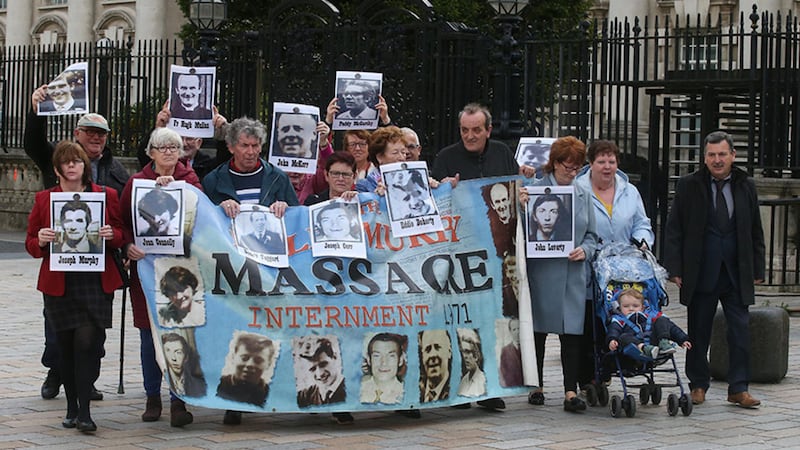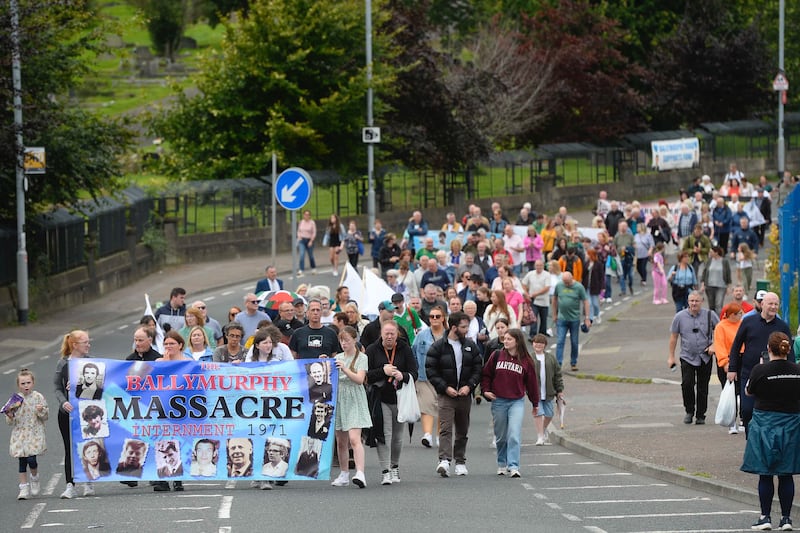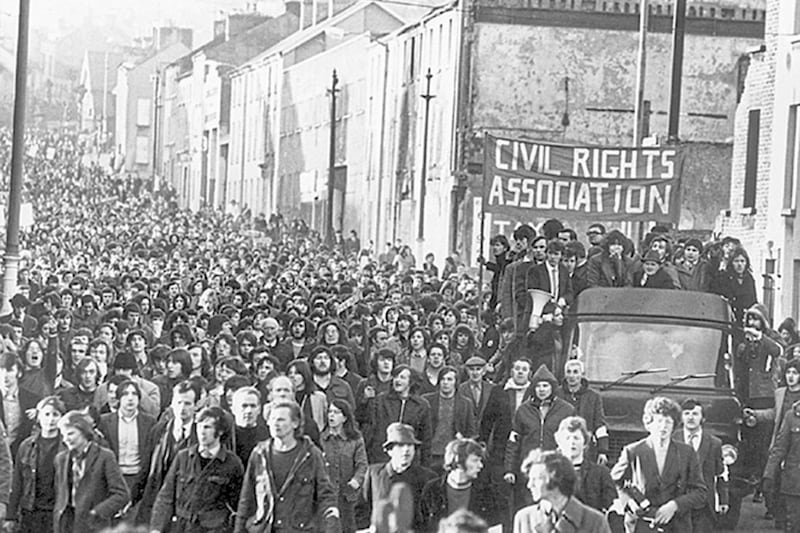More than 100 former soldiers are being asked to provide statements to a new inquest into the fatal shooting of 10 people in the Ballymurphy estate in west Belfast in 1971, Belfast Coroner's Court has heard.
In total 119 former soldiers are being asked to provide statements to the inquest which is due to formally get under way on Monday November 12.
The evidence from the soldiers is expected to be heard early next year.
Soldiers have long been held responsible for killing 10 people in Ballymurphy between August 9-11 1971, but the accepted narrative became clouded earlier this year when former UVF members came forward to claim their organisation was also involved.
Read More:
- AOH backs Ballymurphy Massacre relatives
- Anger at late MoD disclosure in Ballymurphy Massacre case
- March held in west Belfast for Ballymurphy Massacre victims
The Coroner's Office has been examining a database of names of former soldiers it received from the Ministry of Defence (MoD) in August.
It aims to trace those who may have been at Ballymurphy during the shootings to call as witnesses to the inquest.
Sean Doran QC, counsel for the Coroner's Service, revealed during a preliminary hearing on Thursday that the initial list of 60 soldiers had been augmented to 76, and now another 43 names have been identified bringing the total number to 119.
Counsel for one of the families raised a concern that the process of tracing former soldiers has been "put on the long finger", and asked for a deadline to be set for responses.
He suggested that the soldiers be legally compelled to co-operate if they do not respond by that deadline.
Responding Mr Doran said a timetable will be drafted over the next couple of months for the evidence of military witnesses in the new year.
"The Coroner's Service is doing everything in its power to ensure proceedings remain on track," he said.
Mr Doran also revealed the Coroner's Service has received correspondence from the regimental associations of the Parachute Regiment and Queen's Regiment querying whether providing information would be a breach of data protection legislation.
Mr Doran told the hearing that a response has been drafted.
"The response on behalf of the Coroner takes issue with that suggestion," he told the hearing.
Coroner Siobhan Keegan put to counsel for the MoD that providing an additional witness to the inquest to explain the context of what was happening in 1971 would be useful.
Kevin Rooney QC, representing the MoD, responded: "It is something we will turn our minds to ... I can certainly see the logic of that suggestion".
A Catholic priest and a mother-of-eight were among those killed during three days of gunfire involving members of the Parachute Regiment.
Another man died of a heart attack following an alleged violent confrontation with the troops in the west Belfast estate.
The shootings took place as the British Army moved in to arrest IRA suspects in the wake of the introduction by the Stormont administration of the controversial policy of internment without trial.
The next preliminary hearing date has been scheduled for Wednesday October 17.








